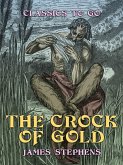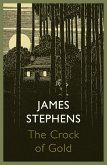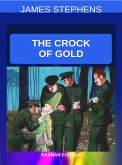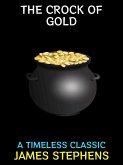In "The Crock of Gold," Martin Farquhar Tupper presents a richly woven tapestry of moral philosophy and allegorical narrative, distinguished by his unique poetic prose style. The book intertwines themes of virtue, greed, and the pursuit of happiness, all while employing a reverent tone that reflects the mid-19th century's burgeoning interest in the interplay between human nature and spirituality. Tupper's work, situated within the context of the Victorian era's moralistic literature, invites readers to ponder the deeper implications of wealth and the sanctity of personal values through a blend of charming narration and resonant moral lessons. Tupper, a noted poet and philosopher, cultivated his literary voice amid the turbulent intellectual landscape of his time, marked by shifts in social ethics and personal responsibility. His background in classical education and influences from Romantic poets inform this work, imbuing it with a profound exploration of existential inquiries. Tupper's experiences and personal convictions shine through his narrative, revealing the author's dedication to uplifting the human spirit through virtuous living and self-reflection. "The Crock of Gold" is highly recommended for readers seeking a thought-provoking literary experience that transcends mere entertainment. It serves as a philosophical guide that encourages reflection on the true essence of wealth and fulfillment, making it pertinent for contemporary audiences grappling with similar dilemmas in a modern context.
Dieser Download kann aus rechtlichen Gründen nur mit Rechnungsadresse in A, B, BG, CY, CZ, D, DK, EW, E, FIN, F, GR, H, IRL, I, LT, L, LR, M, NL, PL, P, R, S, SLO, SK ausgeliefert werden.









